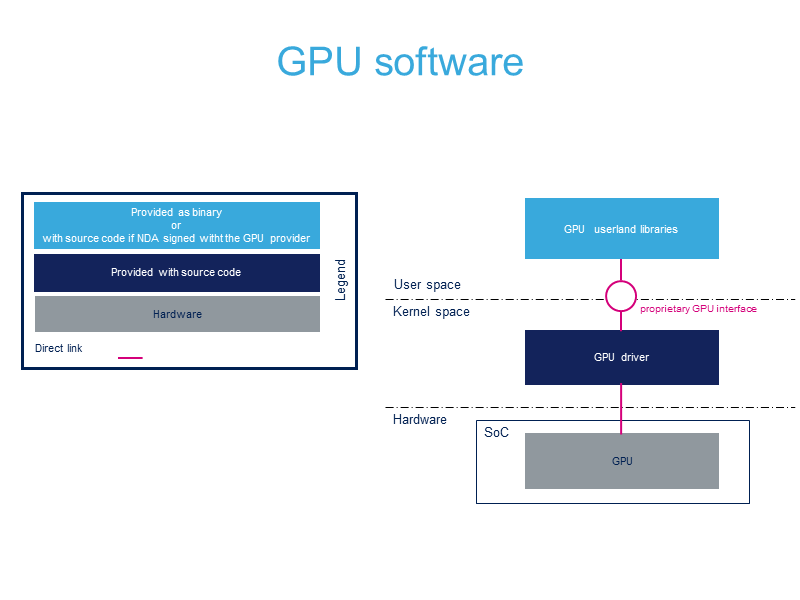Vivante GCNANO GPU overview
目录
Introduction
STMicroelectronics STM32MP1平台具有基于Vivante Gcnano GPU的OpenGLES硬件IP。.
您可以在Vivante GCNANO网页上找到更多信息。[1][2]
Features
Supported open standards
Vivante Gcnano GPU 与以下Khronos的开放标准3D图形[3]:
- OpenGLES 2.0
- OpenGLES 1.1
- OpenVG 1.1
- EGL 1.4
Vivante Gcnano GPU configuration
- Core Clock 264MHz
- Shader Clock 264MHz
- Pixel Rate 264 MPixel/sec
- Triangle Rate 26.4 M tri/sec
- Vertex rate 66 M vtx/sec
- 1 shader core (Vec 4)
- 2.112 GFLOPS shader
GPU softwares

Vivante Gcnano GPU userland libraries
excepted if customers signed a NDA with Vivante (please contact Vivante if you need these library source codes). The Gcnano libraries (userland) are:
- OpenGLES 1.1 library
- OpenGLES 2.0 library
- EGL 1.4 library
- gbm library
- GAL library
- GLSLC and VSC libraries
- VDK library
Vivante Gcnano kernel driver
Source code is available for all customers in all OpenSTLinux baselines.
To access source code:
devtool modify gcnano-driver-stm32mp
Source code is then downloaded here:
- <your_view>/build*/workspace/sources/gcnano-driver-stm32mp
Refer to OpenEmbedded - devtool to know more about devtool.
Additional information
- STMicroelectronics provides debug Vivante Gcnano libraries according to any baseline version, allowing customers to debug/analyze their applications with the Vivante Tool Kit (VTK). Please have a look to the article 如何使用VTK调试Gcnano GPU for more details.
Useful links
- Vivante website: http://www.vivantecorp.com/
EGL
Supported EGL backend
From VIVANTE_GAL3D_Unified_Src_drv_6.1.x, Vivante delivery, Vivante Gcnano libraries support both DRM/GBM and Wayland backends.
Refer to EGL backends article for details.
EGL texture 0-copy
Gcnano supports the EGL texture 0-copy extension.
EGL texture 0-copy extension allows an EGL application to share a texture buffer with the GPU by avoiding to copy the texture from application to the GPU.
Refer to EGL texture 0-copy article for more details.
Graphic Benchmarks
Please refer to the How to test and benchmark OpenGLES article.